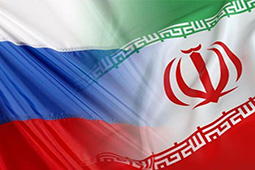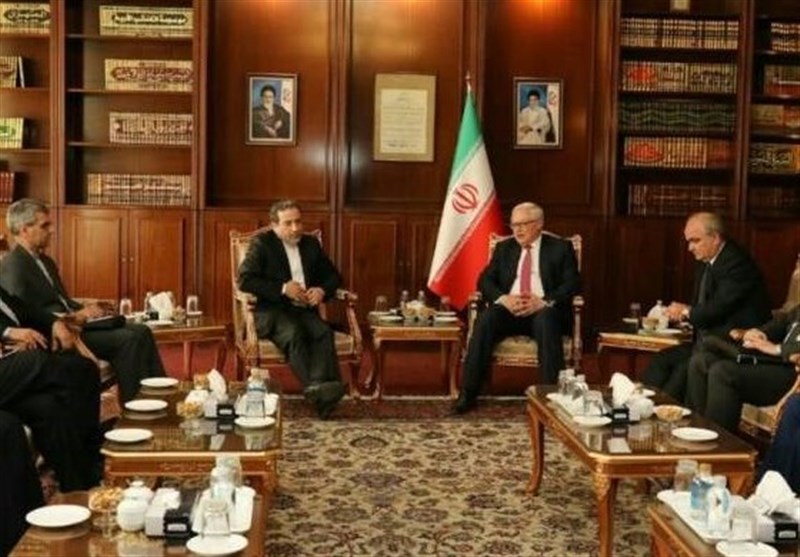
Iranian, Russian Deputy FMs Discuss Regional, Int’l Developments

During the meeting, held in Tehran on Wednesday, Araqchi and Ryabkov held talks about various issues, including ways to boost bilateral relations between the Islamic Republic and the Russian Federation and the latest regional and international developments.
The two diplomats also discussed the 2015 nuclear deal, known as the Joint Comprehensive Plan of Action (JCPOA).
Iran’s Supreme National Security Council (SNSC) issued a statement on May 8, saying Iran is no longer fulfilling some of its obligations under the JCPOA, and setting a two-month deadline for the remaining parties to fulfill their undertakings.
Speaking at a cabinet session on the same day, President Hassan Rouhani said the five remaining parties to the JCPOA -Russia, China, Britain, France, and Germany- have been informed of Tehran’s decision to refuse to continue honoring two commitments under the deal.
He said Iran stops selling any enriched uranium above the 300-kg limit in exchange for yellow cake and also stops selling its heavy water above the limit of 130 tons.
The president also announced that the JCPOA parties will have 60 days to come to the negotiating table and fulfill Iran’s main interests under the nuclear deal, especially regarding oil sales and banking interaction.
If Iran does not achieve the desired results after 60 days, it will take two more measures and stop observing the limit on uranium enrichment to 3.67 percent purity, he added.
The president said Iran will also make a new decision about its Arak heavy water reactor –which was planned to be renovated with the participation of the JCPOA parties- after the 60-day deadline.
Rouhani also threatened that Iran will take a “decisive measure” if the JCPOA parties would intend to send Iran’s nuclear case to the UN Security Council.
Iran’s announcement came a year after US President Donald Trump pulled his country out of the agreement, which was signed in 2015.



Trump weighs using $2 billion in CHIPS Act funding for critical minerals

Codelco cuts 2025 copper forecast after El Teniente mine collapse

Electra converts debt, launches $30M raise to jumpstart stalled cobalt refinery

Barrick’s Reko Diq in line for $410M ADB backing

Abcourt readies Sleeping Giant mill to pour first gold since 2014

Nevada army depot to serve as base for first US strategic minerals stockpile

SQM boosts lithium supply plans as prices flick higher

Viridis unveils 200Mt initial reserve for Brazil rare earth project

Tailings could meet much of US critical mineral demand – study

Kyrgyzstan kicks off underground gold mining at Kumtor

Kyrgyzstan kicks off underground gold mining at Kumtor

KoBold Metals granted lithium exploration rights in Congo

Freeport Indonesia to wrap up Gresik plant repairs by early September

Energy Fuels soars on Vulcan Elements partnership

Northern Dynasty sticks to proposal in battle to lift Pebble mine veto

Giustra-backed mining firm teams up with informal miners in Colombia

Critical Metals signs agreement to supply rare earth to US government-funded facility

China extends rare earth controls to imported material

Galan Lithium proceeds with $13M financing for Argentina project

Kyrgyzstan kicks off underground gold mining at Kumtor

Freeport Indonesia to wrap up Gresik plant repairs by early September

Energy Fuels soars on Vulcan Elements partnership

Northern Dynasty sticks to proposal in battle to lift Pebble mine veto

Giustra-backed mining firm teams up with informal miners in Colombia

Critical Metals signs agreement to supply rare earth to US government-funded facility

China extends rare earth controls to imported material

Galan Lithium proceeds with $13M financing for Argentina project

Silver price touches $39 as market weighs rate cut outlook

















